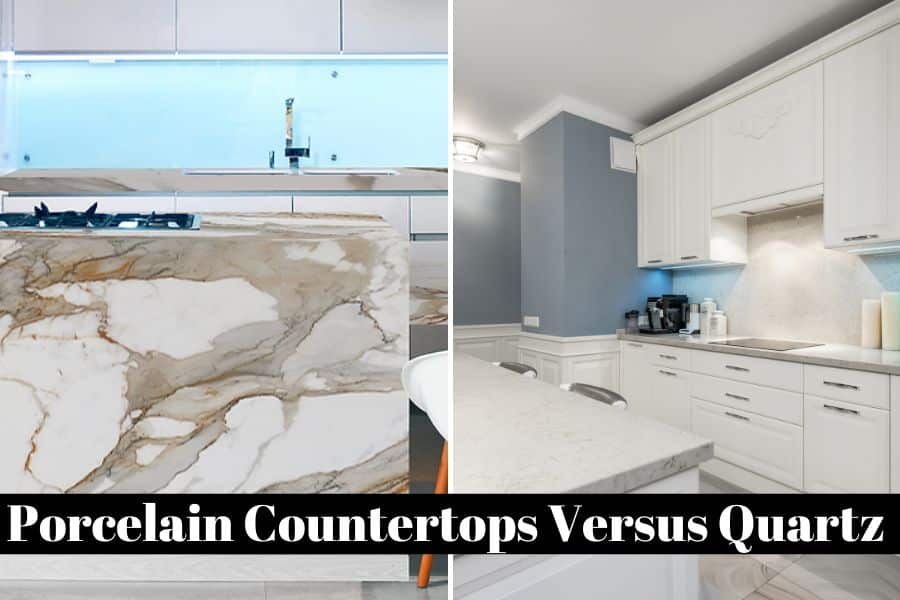
Porcelain countertops have been around for a while however not many home owners know about them.
I love that you are researching them.
When it comes to selecting countertops for kitchens or. bathroom, its very important to understand the different types and what they offer.
In my line of work at the gallery, almost 95% of home owners prefer durability with light color options and low maintenance.
If that is you, quartz and porcelain are two most popular options.
I am calling this my best guide for porcelain countertops versus quartz.
I will cover everything you need to know about these two countertop options.
When you are done reading this article, you will be able to decide which one you want to use in your project.
Let’s get started….
Important: On this website, I feature a select number of partners and companies that have products that could help my audience. As an Amazon associate, When you purchase something through my partner links, I might get paid for the referral at no extra cost to you. Read the full disclosure here.
This post is about porcelain countertops versus quartz
Topics List :
- What are Quartz Countertops
- What are porcelain Countertops
- Comparing Quartz vs porcelain on appearance
- Comparing Quartz vs porcelain on Durability
- Comparing Quartz vs porcelain on maintenance
- Comparing Quartz vs porcelain cost
- Which one should you choose ?
- FAQs
What are Quartz Countertops ?
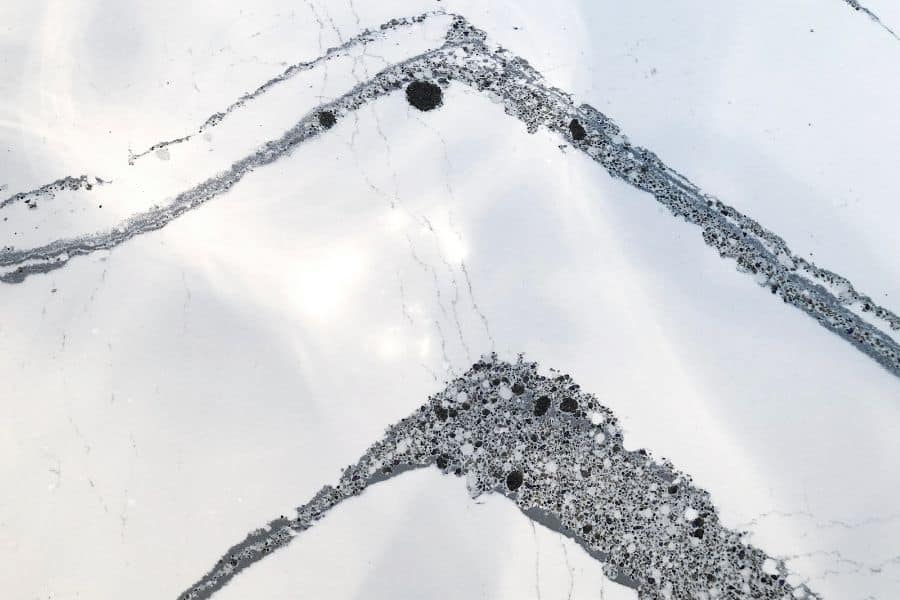
Quartz countertops are engineered stone countertop surfaces that have about 94% ground natural quartz and 6% polymer resins.
Quartz itself is a natural material. To manufacture quartz countertops, raw quartz is extracted from mines.
These quartz crystals are crushed into powder.
This powder is mixed with resin and dyes and poured into countertop slab moulds.
Because of the manufacturing process, quartz surfaces are a very durable material and have a uniform look.
What are porcelain Countertops ?
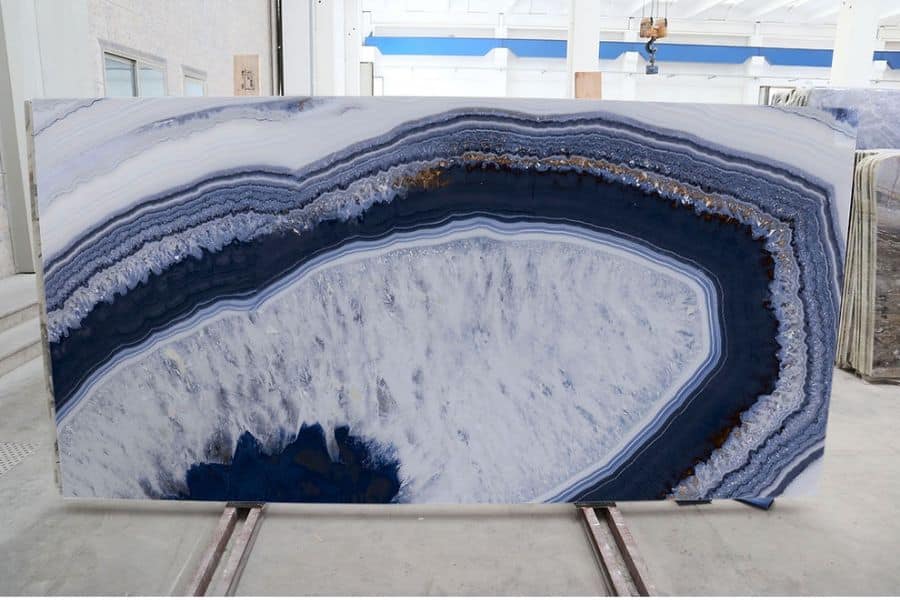
Porcelain is a type of ceramic that has been fired under very high temperatures .
Traditionally porcelain tiles have been used for flooring for a very long time.
Porcelain is made from a mixture of natural clay, feldspar , mineral oxides and kaolin.
This mixture is commonly know as China Clay. The mixture is wet-milled to a liquid slurry.
This slurry is then dried and formed into large slabs of porcelain.
Once the slabs are formed, each slabs is fired under extremely high temperatures.
Comparing Quartz vs Porcelain on appearance

Both quartz and porcelain offer a wide variety of colors and patterns.
Quartz tends to have a more consistent and symmetrical pattern.
Quartz offers more choices when it comes to finishes.
Quartz countertops are available in polished, Matte, Honed and leathered finishes.
Porcelain, on the other hand, can mimic the natural irregularities of stone or wood better.
One of the cons of porcelain countertops is that they are available in only two finishes. Polished ( Shiny) and Matte finish.
Comparing Quartz vs porcelain on Durability
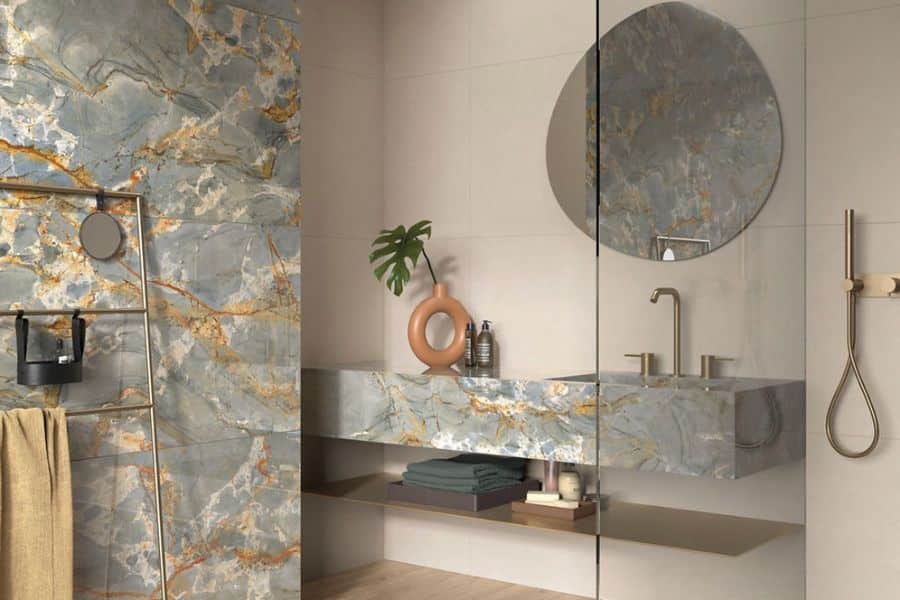
Both materials are highly durable and man-made.
The biggest difference is that quartz can not be used outdoors because of the use of resins.
The UV rays can react with the resin which can result in damaging the surface,
Porcelain slab countertops has a high level of heat resistance.
They can be installed outside like granite countertops under direct sunlight.
This makes them a popular choice.
Heat Resistance:
Quartz countertop material is very heat resistant but not heat proof.
You should not put hot pans or pots directly on your new countertop.
Thermal shock can cause damage.
Porcelain countertops is a great choice as this man-made material takes heat exposure very well.
You can place hot pots directly on porcelain kitchen countertops.
Scratch Resistance:
Both the surface materials are scratch resistant.
They both are widely used as bathroom countertops and in commercial spaces.
Edge Options:
When it comes to edge options, you have more options with quartz than porcelain stoneware.
Quartz slabs are typically available in three thicknesses: 1cm, 2cm, and 3cm.
Porcelain slabs are generally thinner than quartz. The standard thicknesses are typically around 6mm (approximately 1/4 inch) and 12mm (approximately 1/2 inch).
Due to its thinner nature, porcelain offers fewer edge choices.
Mitered or square edges are commonly done with porcelain to give an illusion of a thicker countertop surface.
RELATED POST : GRANITE VS MARBLE VS QUARTZ
Comparing Quartz vs porcelain on maintenance
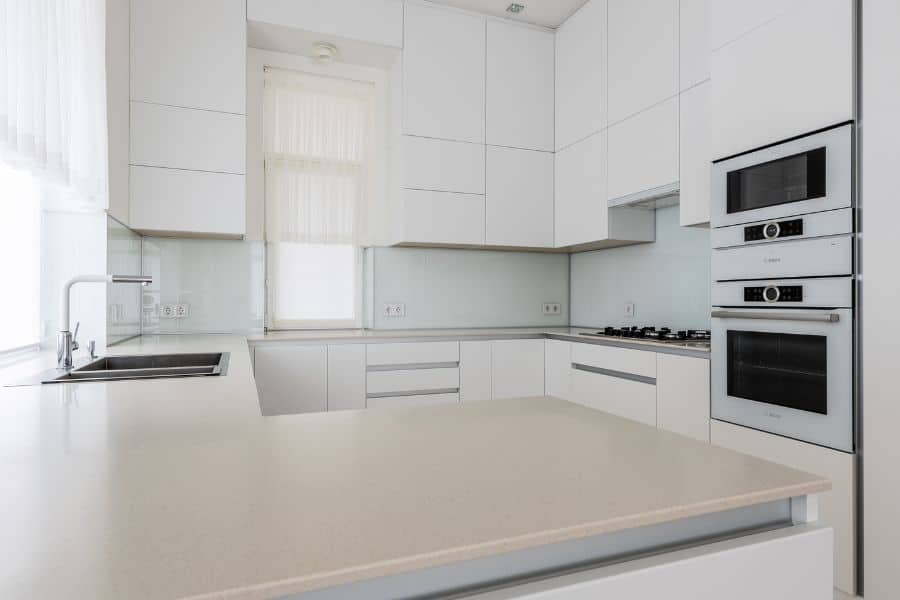
Both porcelain material and quartz kitchen countertops are quite easy to maintain, needing only mild cleaning solutions.
They’re non-porous, which means they resist staining quite effectively.
The ease of maintenance makes both of them a good choice.
Comparing Quartz vs porcelain cost
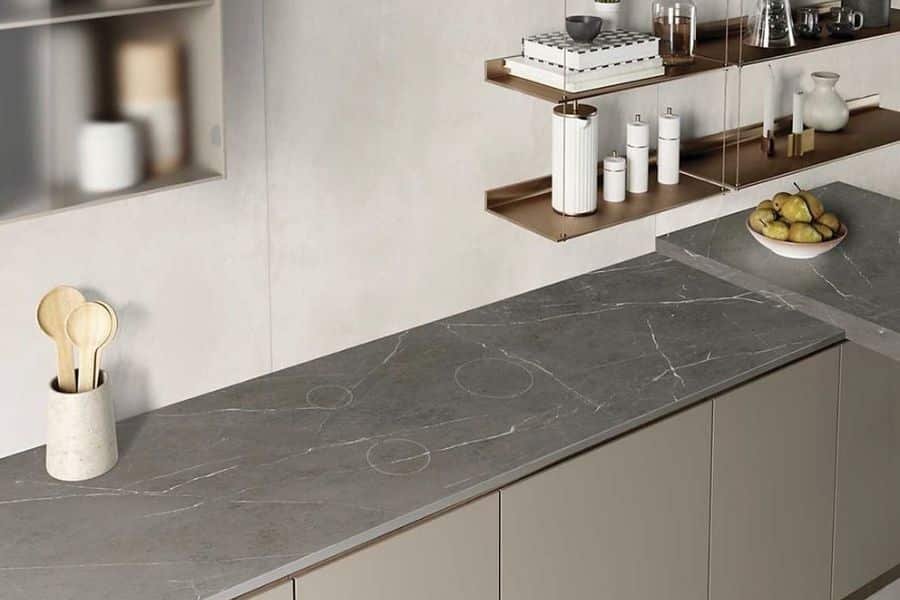
Quartz countertops tend to be more expensive than porcelain.
However, the total cost may depend on the complexity of the installation, the specific brand, and the region where you live.
Both options require professionals for installation.
Installing porcelain is trickier due to its brittleness. The slabs can snap or get a crack if not handled carefully.
Sometimes porcelain countertops installation cost might be higher than quartz installation cost.
My recommendation is that when you choose a fabricator to install porcelain countertops, make sure they have done projects before with porcelain.
On average, quartz countertops can range from about $50 to $120 per square foot, installed.
Porcelain tends to be a bit less expensive, with average costs ranging from about $40 to $100 per square foot, installed.
I would always research pricing in your area to make sure.
Here is a video on these differences by Denise Butchko.
Which one should you choose ?

The answer to this depends a lot on combination of things and also specific needs.
You need to consider your kitchen usage, also what will work better with your design aesthetics.
Cost is a major factor too.
If you want more options in patterns and stone look then porcelain is the way to go. Also, if you are deciding on an outdoor kitchen, porcelain should be the pick.
FAQs
Can porcelain countertops withstand outdoor conditions?
Absolutely! One of the advantages of porcelain is its resistance to UV light, making it an excellent choice for outdoor installations.
Is it safe to place hot pots directly on quartz countertops?
While quartz is heat resistant, it’s always better to use trivets or heat pads to prevent possible damage from extreme temperatures.
Can porcelain or quartz countertops be damaged?
Yes, despite their impressive durability, both materials can suffer damage from severe impact or improper handling.
Which one requires less maintenance, porcelain or quartz?
Both are equally low-maintenance, requiring only simple, regular cleaning to maintain their appearance.
Which countertop material is more sustainable?
While both have green attributes, porcelain is generally considered more eco-friendly due to its natural composition and recyclability.
Does quartz countertop require regular sealing?
No, quartz countertops are non-porous and do not require any sealing.
Disclaimer :
The information in this post is for general informational purposes only. The author
and publisher are not responsible for any damage, injury, or loss that may occur from using the
information provided. Readers should follow safety guidelines and take necessary precautions
as listed by installation countertop professionals.
This post is about porcelain countertops versus quartz
The Best Guide: Quartzite vs Quartz Countertop
The Ultimate Guide to Thickness of Quartz Countertops
40 Stunning Kitchen Accent Wall Ideas for Any Design Style
“Reviving a Heritage Beauty : Home Tour
Neutral Earthy Design Inspiration That Are Timeless
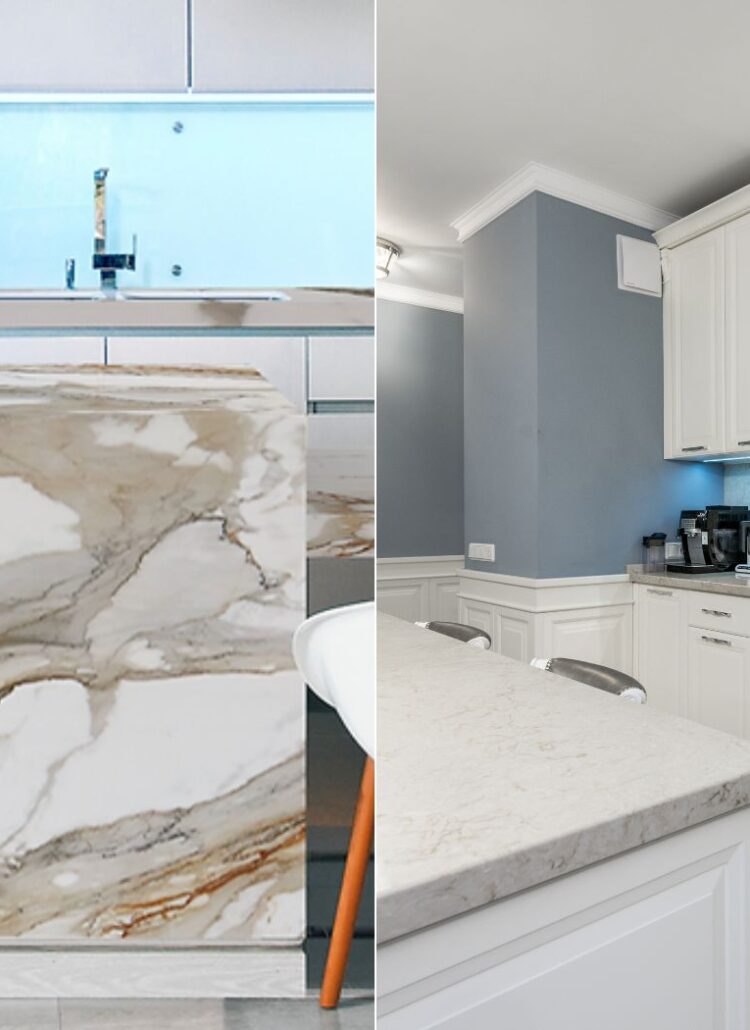


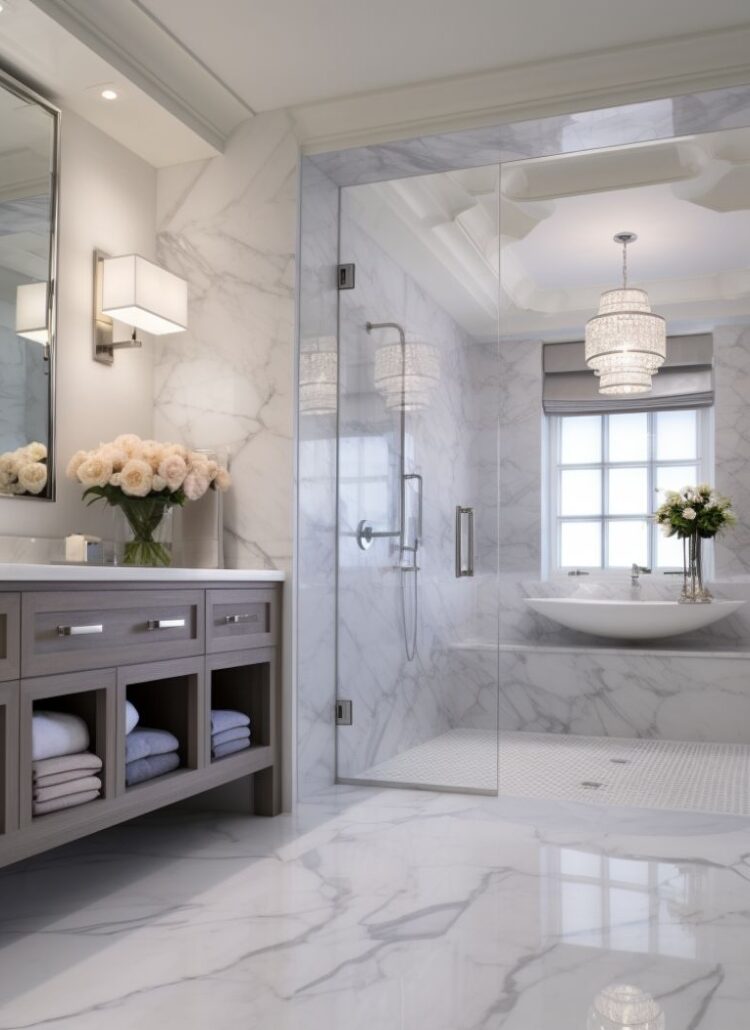


Leave a Reply